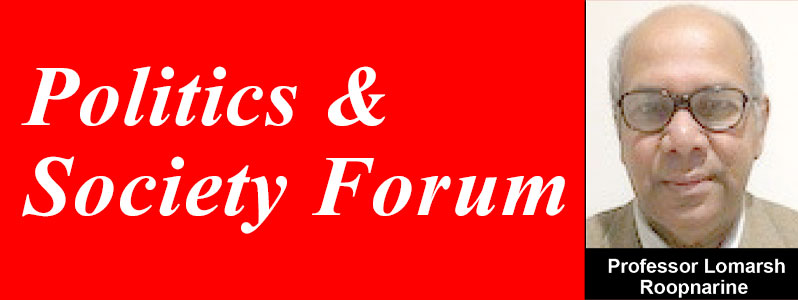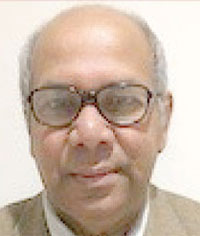THE announcement that local elections would be held by the end of this year may not sound like music to the ear, given the straitjacket embedded in governing GECOM. Some might have choked on their drinks when receiving the news that the PPP/C administration would carry on with the local elections in 2021. Since the failed attempt to steal the March 2, 2020 general election to favour the APNU+AFC Coalition, nothing of significance has changed, other than deepened distrust of GECOM.
It appears that the PPP/C has a plan in place to iron out the kinks insofar as providing the right mechanisms for fair and reliable local elections coupled with the confidence that the staff in the electoral machinery would observe and obey the fundamental principles of conducting elections. The European Union Election Observation Mission’s 26 recommendations come to mind. I am not convinced that the PPP/C administration is poised in such a short time to meet the contradictory challenges in GECOM.
I suspect that the PPP/C administration is determined to uphold the local electoral rhythm every two years to facilitate the drumbeat of democracy and to venture out from the licitly of the past, namely, the absence of local elections. This is not a mawkish position since local elections will not lead to the changing of guards at the national level, and elected leaders at the local level would have the opportunity to speak and address issues affecting them. I foresee no qualms here.
If anything at all, local elections will provide a latticework to fill and address the controversial squares, the diachronicity in GECOM. If most of the staff is retained, especially the embattled ones in Region 4, then this would provide them with the opportunity to show that they are not what they have been accused of, an attempt to steal the general election to favour the Coalition. This is an unfortunate burden of comportment to carry, but arguably, it was self-inflicted within GECOM, not an imposition from the citizenry. Even if the exigencies of public service are met in the 2021 local elections that does not mean exoneration from the excesses of the March 2, 2020 general elections. I might have to call in the psychologist on this one.
The local elections will also indicate to each political party and the citizenry where they stand in relation to amassing votes and gauging the level of support they receive. I am assuming that the PNC and AFC in the Coalition will go to the local election polls individually, a move that will provide a base to assess their individual political relationship with voters. If the Coalition goes to the polls collectively, we will still have an opportunity to compare the local (2018), general (2020) and local (2021) elections to fix some challenges associated with GECOM. The purpose of both local and general elections is obviously different but the procedure of conducting a fair and free election is unchangeable.
I will go further and add one crucial dimension to the local elections. The time has come to depart from the way Mayors of our towns are elected, a colonial carryover to the modern period. In Georgetown, for instance, which comprises a fourth of Guyana’s population, the people do not vote for their Mayor. Instead, a Council of 30 people -though they may not be from Georgetown – decides who should be the Mayor of Georgetown. It is no secret that nepotism is the buzzword in the 30-member council. The political-affiliated party in the Council with the most seats generally dominates, and therefore, voting on vital issues is merely a decorative exercise designed to meet procedural mandates.
This explains why some Mayors have had prolonged periods of leadership modelled after “scratch my back” and “our turn” syndrome. This occurs even when the Minister of Local Affairs in the sitting government has the final say in urban matters. I opine that any different system other than what we have now would be a step forward in choosing our Mayor. In the United States, the people vote for their Mayors, not a chosen few, amid limited friction.
The above has added to the heightened awareness of politics across the tranche of Guyana so much so that if not tackled we might be fooling ourselves. First off, institutions matter more than individuals or political parties so that within GECOM we must establish forms of social control over individual actions. We ought to socialize individuals to meeting and conforming to the logic of appropriateness. This can be achieved by setting down strict rules that contain and direct behavior that exposes good as well as bad actions at any given time.
In this process, the logic of consequence is achieved, and, that is, those who are entrusted to perform impartial duties, such as in GECOM, must be cognisant that there are consequences based on reward and reckless actions. I know that what I have said here is up against a radical upswing of behaviour and ideas since the Opposition was ousted from power. But what alternative do we have if individuals in the line of duties and responsibilities are not socialized to understand what sociologist Max Weber calls “national-legal authority.” Impartial behaviour governed by law and reason is the defining feature of legitimate authority (lomarsh.roopnarine@jsums.edu).




.png)









